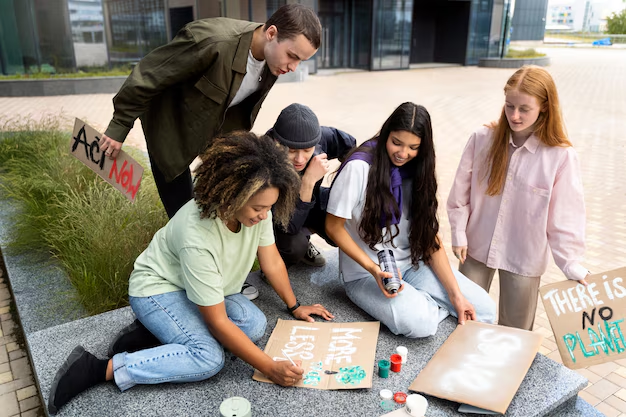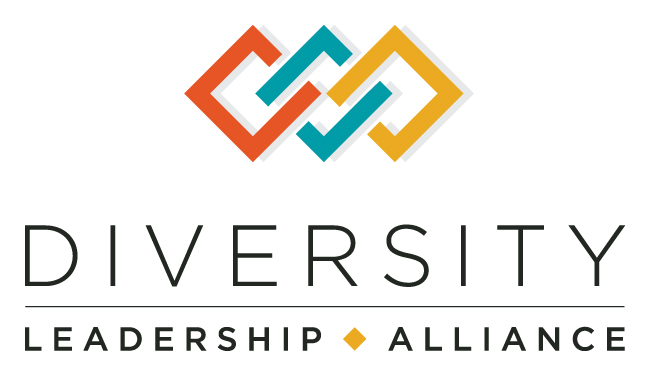
Introduction: The Importance of Youth Leadership Training
Youth leadership development is a crucial investment in the future. The young leaders of today will shape the policies, businesses, and communities of tomorrow. Preparing them with the right skills, values, and experiences ensures that they can take on leadership roles with confidence, resilience, and a deep commitment to inclusion.
At Diversity Leadership Alliance (DLA), we recognize that leadership is not just about individual success but about creating equitable and inclusive environments where all voices are valued. Through carefully designed youth leadership training programs, organizations can empower young individuals to become effective decision-makers, skilled communicators, and advocates for diversity, equity, and inclusion (DEI).
This comprehensive guide will walk you through the essential components of an effective youth leadership training curriculum, implementation strategies, and best practices to ensure meaningful impact.
To further explore leadership initiatives focused on diversity and inclusion, visit the Diversity Leadership Alliance website.
Key Elements of an Effective Youth Leadership Training Curriculum
An impactful youth leadership training curriculum must be holistic, covering personal development, leadership skills, teamwork, problem-solving, and community engagement. The following sections outline the critical components necessary to develop a well-rounded leadership training program.
1. Self-Awareness and Personal Development
Strong leadership starts with self-awareness. Young individuals need to understand their strengths, weaknesses, values, and leadership styles to lead effectively. Training programs should include:
- Self-reflection exercises to help participants recognize their leadership potential
- Strengths and personality assessments to identify unique leadership styles
- Emotional intelligence training to improve self-regulation and interpersonal relationships
By fostering self-awareness, young leaders can make informed decisions that align with their personal values and leadership vision.
2. Effective Communication and Public Speaking Skills
Communication is at the heart of leadership. Youth leadership programs should emphasize:
- Public speaking workshops to build confidence in presenting ideas
- Active listening exercises to enhance collaboration and problem-solving
- Conflict resolution training to navigate difficult conversations and mediate disputes
A strong focus on communication skills helps young leaders articulate their vision, inspire others, and engage in meaningful dialogue.
To learn more about leadership communication strategies, explore the DLA Youth Leadership Program.
3. Teamwork and Collaborative Leadership
Great leaders understand the power of teamwork. The ability to work with diverse teams and build strong relationships is a critical leadership skill. Leadership training programs should incorporate:
- Group projects and team-based problem-solving activities
- Leadership simulations that encourage collaboration
- Training on conflict management and team dynamics
These activities teach young leaders how to lead within a team, delegate responsibilities, and leverage the strengths of others.
4. Critical Thinking and Strategic Decision-Making
Leadership requires the ability to analyze complex problems, make strategic decisions, and adapt to changing circumstances. To develop these skills, programs should include:
- Decision-making frameworks that encourage critical thinking
- Ethical leadership discussions that highlight integrity in decision-making
- Crisis management exercises that teach adaptability and resilience
By fostering critical thinking, young leaders can confidently address challenges and create innovative solutions.
For insights into leadership development trends, explore The Future of Diversity, Equity, and Inclusion Training Trends to Watch in 2025.
5. Diversity, Equity, and Inclusion (DEI) Training
Diversity, equity, and inclusion should be integrated into every aspect of leadership training. Young leaders must be equipped with the knowledge and skills to foster inclusive environments. A strong DEI component should include:
- Unconscious bias training to recognize and challenge personal biases
- Discussions on cultural competency to build awareness of different perspectives
- Workshops on allyship and advocacy to empower leaders to drive meaningful change
At Diversity Leadership Alliance, we are committed to advancing DEI in leadership. For more on DEI-focused leadership initiatives, visit the DLA website.
6. Community Engagement and Civic Responsibility
Leadership extends beyond personal development—it requires active participation in community building. Training programs should encourage:
- Volunteerism and community service projects
- Social impact initiatives that address pressing societal issues
- Networking with local organizations to foster civic engagement
By engaging in community projects, young leaders learn the value of service and develop a deeper understanding of their role in creating positive change.
To learn more about leadership opportunities that promote civic engagement, explore the DLA Annual Leadership Conference.
Implementing a Successful Youth Leadership Training Curriculum
Developing a youth leadership training curriculum is only the first step. Effective implementation ensures that participants receive maximum benefits from the program. The following strategies can help create a dynamic and engaging leadership training experience.
1. Interactive and Experiential Learning Approaches
Traditional lectures alone are not effective in leadership training. Programs should incorporate interactive learning methods such as:
- Role-playing exercises to simulate real-world leadership challenges
- Peer-to-peer coaching to encourage collaborative learning
- Case study discussions to analyze leadership successes and failures
Hands-on learning helps participants develop confidence and apply leadership principles in practical scenarios.
2. Mentorship and Coaching Programs
Mentorship is a powerful tool for leadership development. Pairing young leaders with experienced mentors allows them to gain valuable insights and guidance. Effective mentorship programs should include:
- One-on-one mentorship sessions with industry professionals
- Leadership shadowing opportunities to observe real-world decision-making
- Structured goal-setting exercises to track personal and professional growth
Mentorship enhances leadership training by providing young individuals with role models and guidance. For mentorship opportunities, explore the DLA March 2025 Trailblazing Together Women Leaders Event.
3. Leadership Challenges and Competitions
Healthy competition can motivate young leaders to apply their skills in real-life scenarios. Leadership training programs should incorporate:
- Pitch competitions where participants present innovative ideas
- Leadership simulations that require strategic thinking and teamwork
- Community engagement challenges that test participants’ ability to lead social impact initiatives
Competitions create a sense of accountability and encourage young leaders to take ownership of their learning.
4. Continuous Feedback and Evaluation
Assessing the effectiveness of a youth leadership program is essential for continuous improvement. Programs should implement:
- Participant surveys to gather feedback on learning experiences
- Self-assessments that encourage personal reflection and goal setting
- Performance evaluations that measure progress and skill development
A strong evaluation process ensures that leadership training programs remain impactful and relevant.
Conclusion: Shaping the Leaders of Tomorrow
Developing an effective youth leadership training curriculum requires a well-rounded approach that integrates self-awareness, communication, teamwork, strategic thinking, DEI, and community engagement. By implementing interactive learning methods, mentorship opportunities, leadership challenges, and continuous evaluation, organizations can create meaningful leadership experiences that prepare young individuals for success.
At Diversity Leadership Alliance, we are committed to equipping the next generation of leaders with the skills and knowledge necessary to drive positive change. Whether you are an educator, corporate leader, or community organizer, investing in youth leadership development is a crucial step toward building a more inclusive and empowered future.
To learn more about leadership training programs and upcoming leadership events, visit the Diversity Leadership Alliance website.
Frequently Asked Questions (FAQs) on Youth Leadership Training Curriculum
1. What is a youth leadership training curriculum?
A youth leadership training curriculum is a structured program designed to develop leadership skills in young individuals. It focuses on personal growth, communication, teamwork, decision-making, diversity, equity, and inclusion (DEI), and community engagement.
2. Why is youth leadership training important?
Youth leadership training equips young individuals with the skills and knowledge necessary to become effective leaders. It helps them develop confidence, critical thinking, problem-solving abilities, and a commitment to social change and inclusion.
3. What are the key components of an effective youth leadership training curriculum?
A strong curriculum includes self-awareness, communication skills, teamwork, strategic decision-making, DEI training, and opportunities for community engagement. Programs should be interactive and provide hands-on learning experiences.
4. How can organizations implement a successful youth leadership training program?
Organizations can implement a successful program by incorporating interactive learning approaches, mentorship and coaching, leadership challenges, and continuous feedback. Structured workshops, role-playing exercises, and real-world application opportunities enhance the program’s effectiveness.
5. How does DEI training fit into youth leadership development?
Diversity, equity, and inclusion (DEI) training ensures that young leaders understand the importance of fostering inclusive environments. It helps them recognize unconscious bias, practice cultural competency, and advocate for marginalized communities.
Learn more about DEI trends in leadership training: The Future of Diversity, Equity, and Inclusion Training Trends to Watch in 2025
6. What role does mentorship play in youth leadership training?
Mentorship provides young leaders with guidance, support, and industry insights. A strong mentorship program includes one-on-one coaching, leadership shadowing, and goal-setting exercises to help participants develop leadership skills.
Explore mentorship-driven leadership programs: March 2025 Trailblazing Together Women Leaders Event
7. What are some effective activities for youth leadership training?
Effective activities include:
- Public speaking and storytelling workshops
- Leadership simulations and team-based projects
- Community service initiatives and civic engagement programs
- Leadership challenges and competitions
8. How do you measure the success of a youth leadership program?
Success can be measured through participant feedback, self-assessments, mentor evaluations, and real-world application of skills. Organizations should track progress and provide continuous learning opportunities.
9. Who can benefit from youth leadership training?
Youth leadership training is beneficial for students, young professionals, community leaders, and anyone interested in developing leadership skills. It prepares them for leadership roles in various sectors, including business, education, and social advocacy.
10. Where can I find a high-quality youth leadership training program?
Diversity Leadership Alliance offers youth leadership programs focused on fostering inclusive, empowered leaders. Visit the DLA Youth Leadership Program to learn more: Diversity Leadership Alliance Youth Program
